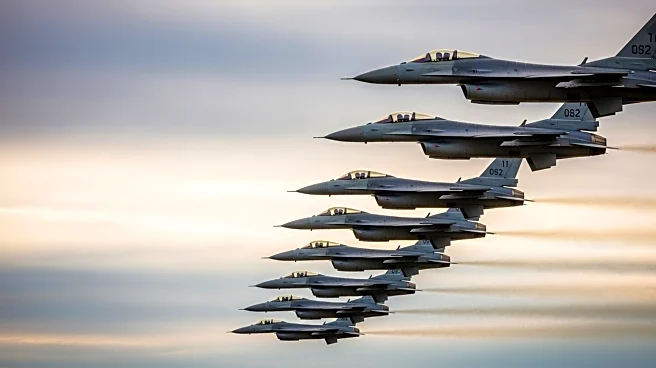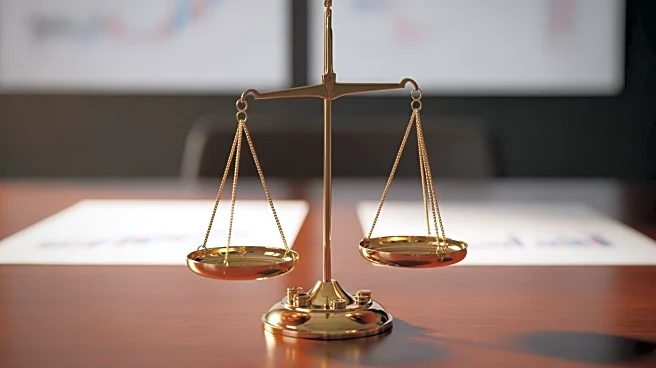What is the story about?
What's Happening?
European defense ministers have pledged to increase support for Ukraine and apply more pressure on Russia after a recent airstrike on Kyiv resulted in 23 fatalities and significant damage to a European diplomatic compound. The attack has prompted European leaders to call for tougher measures against Russia, including the seizure of frozen assets, additional sanctions, and enhanced military support for Ukraine. Discussions among the 27-nation bloc have also included potential postwar security guarantees, such as EU training missions in Ukraine once a ceasefire is established. European Commission President Ursula Von der Leyen has commenced a tour of EU nations bordering Russia or Belarus, visiting arms factories and border installations to discuss security measures.
Why It's Important?
The escalation in support for Ukraine and increased pressure on Russia by European defense leaders signifies a critical shift in the geopolitical landscape. This move could potentially alter the dynamics of the ongoing conflict, impacting international relations and security policies. The European Union's commitment to supporting Ukraine's military and considering its membership could strengthen Ukraine's position against Russian aggression. Additionally, the seizure of Russian assets and further sanctions could have significant economic repercussions for Russia, potentially influencing its strategic decisions. The involvement of multiple countries in supporting Ukraine highlights the global implications of the conflict and the importance of collective security measures.
What's Next?
The European Union is expected to continue discussions on increasing sanctions and defense supplies to Ukraine. The U.N. Security Council has scheduled an emergency meeting to address the airstrikes against Ukraine, which may lead to further international diplomatic actions. The U.S. has approved a substantial arms sale to Ukraine, indicating continued support. European leaders are likely to explore ways to bypass Hungary's veto on financial aid to Ukraine, potentially utilizing NATO's new Prioritised Ukraine Requirements List. The ongoing tour by Ursula Von der Leyen may result in additional security collaborations with EU nations bordering Russia.
Beyond the Headlines
The recent developments could lead to long-term shifts in European defense strategies and international alliances. The emphasis on seizing Russian assets and increasing sanctions reflects a growing willingness to leverage economic tools in geopolitical conflicts. The potential EU membership for Ukraine could redefine the region's political landscape, influencing future EU-Russia relations. The focus on postwar security guarantees underscores the importance of establishing sustainable peace and stability in the region, which may involve complex negotiations and international cooperation.















